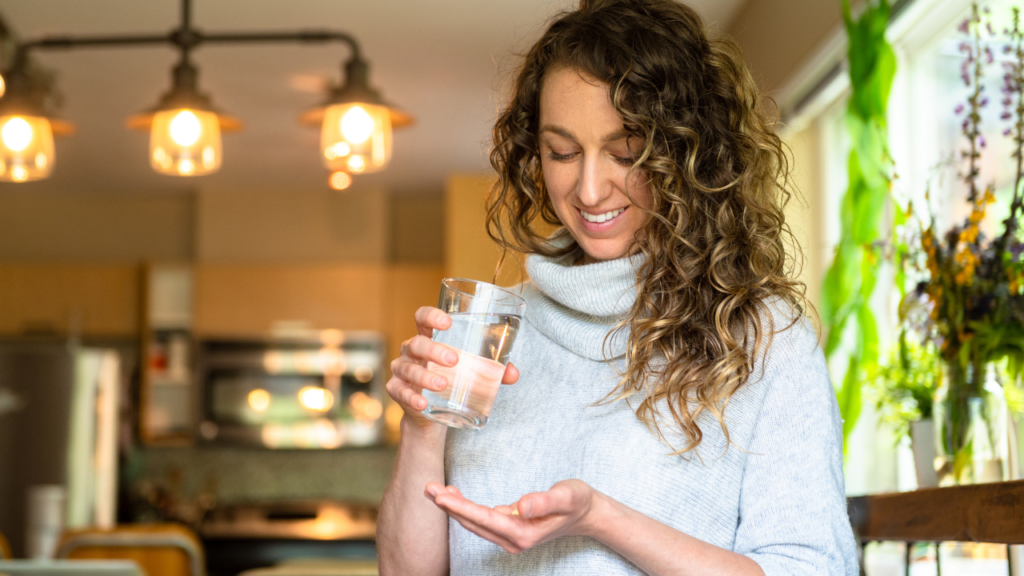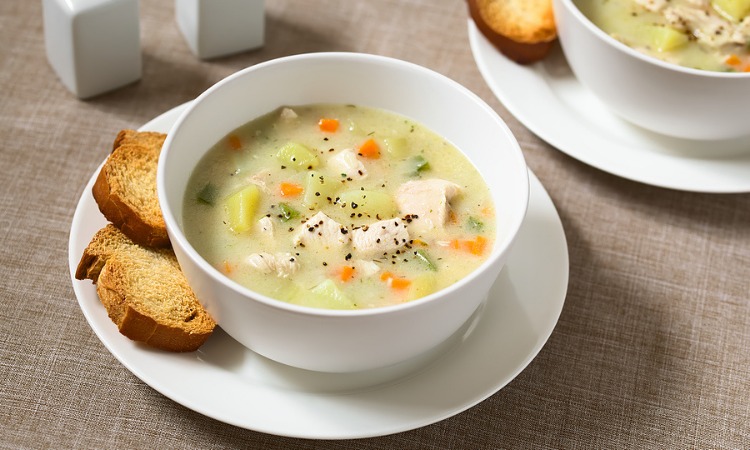One thing we know as we face the uncertainty of catching and recovering from the many variations of COVID and other related viral infections is that having a healthy immune system is key to preventing the severity of them.
The Benefits of Zinc
As healthcare providers and researchers scramble to find a cure and relief to the variants of COVID, zinc, an essential mineral in our diet, is part of the discussion and maybe part of the therapy. Recent research is finding people with COVID and who have lower zinc levels seem to be sicker and have longer recovery times. The virus impact is harder on older people who also tend to have lower zinc levels than younger people. While zinc is far from the whole COVID recovery story, it may be a player.
Research shows the common cold, also a virus, can be shortened by length of time and with less chest and nasal congestion by sucking on zinc lozenges. For effectiveness, as soon as you have cold symptoms, use lozenges every two to four hours for at least 24 hours. One reason zinc works is that it seems to inhibit the ability of the virus to replicate. Zinc gluconate or acetate are the most effective lozenges. Since lozenges do not taste good, avoid picking one with added corn syrup or citric acid as these additives reduce zinc potency. Zinc nasal sprays are not suggested because they can permanently destroy the sense of taste and smell. Always check with your pharmacist if you have questions.
Recommended Daily Allowance

Zinc is required in our daily diet because the body does not store it. Most people eat the Recommended Daily Allowance of zinc which is 11 mg. for men and 8 mg for women. However, an older person may be deficient enough in zinc as to impair their immune system making it work harder to overcome an infection. Zinc also has antiviral properties meaning it can interfere with virus growth. In other ways zinc is busy being part of our body chemistry by reducing inflammation, supporting wound healing, maintaining healthy vision, and the ability to taste and smell.
Foods with Zinc
A wide variety of foods contain zinc with the highest amount found in oysters. If oysters are not on your menu, beef, pork, and chicken provide the next best amounts. Plant-based sources are lower in zinc, but it can be found in fortified breakfast cereals, beans, nuts, and seeds. Vegetarians have more of a challenge getting enough zinc and should evaluate their diet to make sure they are getting enough. Multivitamin supplements are an option as they usually contain zinc.
Zinc and Aging
As we age our immune system is not as robust as it was when we were younger. Elderly people are more likely to be poorly nourished for multiple reasons including having poor appetite, reduced pleasure in eating, poor oral health, taking multiple medications, and lacking socialization during meals. They may be physically unable to prepare food or grocery shop and are less likely to eat three meals a day. All of this can contribute to poor nutrition.
Over time short-changing our nutrition catches up with us. A healthy varied diet allows the mix of essential nutrients- vitamins, minerals, protein, carbohydrate, fat, and water to reach our cells enabling healthy growth and maintenance of our entire body. If our diet falls short, we short-change the opportunity for robust health. Too much of one and not another throws off nutritional balance, including our immune system.
Call for Action
Assess your current diet. Mindfully review and list what you typically eat. Make three columns: 1. Healthy 2. OK Not Great 3. Not Healthy. What can you change? Make a new list.
Recipe Tip
For all seasons, some of the most cozy and comforting food is soup. Soup can be shared with a neighbor or friend who might need a touch of tasty warmth and your thoughtfulness. Use a quart mason jar to deliver this gift from your kitchen. As we try to find our way during this different time, we can offer gifts from our kitchen- even if they are delivered from a distance and with a smile behind your mask.
 Roasted Chicken Vegetable Soup
Roasted Chicken Vegetable Soup
This is a simple soup with simple ingredients and easy to make. You need a 7-quart pot or bigger. The recipe makes 8 to 10 servings.
1 grocery store roasted chicken or 4 cups cooked chicken
1 tablespoon butter
1 tablespoon extra-virgin olive oil
2 medium onions, cut in 1/2-inch pieces
2 cloves garlic, minced
5 cups chicken broth
1 pound carrots, peeled, cut in medium chunks
4 cups cabbage, cut in approximately 1 to 2-inch pieces
1 pound Yukon Gold potatoes, cut in 1/2 to 3/4- inch chunks
1-1/2 tablespoons Mrs. Dash Original Seasoning
1-1/2 teaspoons salt
1 cup frozen corn
1 cup frozen peas
- Remove chicken from bones and cut big pieces into generous chunks. Cover and refrigerate while preparing remaining ingredients.
- In a large pot, melt butter with olive oil. Add onions and garlic. Gently sauté for 15 minutes until onions are soft.
- Add broth, carrots, cabbage, potatoes, Dash, and salt. Stir. Cover and simmer until carrots and potatoes are tender, but not soft.
- Stir in chicken, corn and peas. Cover. Simmer until chicken is hot, about 10 minutes.
 Written by: Mimi Cunningham MA, RDN, CDCES
Written by: Mimi Cunningham MA, RDN, CDCES
Mimi is a registered dietitian-nutritionist and diabetes care specialist helping people learn to manage their diabetes and achieve good health. She believes food definitely is good culinary medicine.
Our Video Resources
![]() For insightful videos on better living: CLICK HERE.
For insightful videos on better living: CLICK HERE.
![]() For a complimentary video worth watching: CLICK HERE.
For a complimentary video worth watching: CLICK HERE.
![]() For a complimentary video worth watching: CLICK HERE.
For a complimentary video worth watching: CLICK HERE.
![]() For a complimentary video worth watching: CLICK HERE.
For a complimentary video worth watching: CLICK HERE.
![]() For a complimentary video worth watching: CLICK HERE.
For a complimentary video worth watching: CLICK HERE.
Related Resources
11 Amazing Health Benefits of Zinc: CLICK HERE
Source: Natural Food Series
Zinc: CLICK HERE
Source: Mayo Clinic
Zinc Supplements: Benefits, Dosage, and Side Effects: CLICK HERE
Source: Healthline
Healthy Eating: CLICK HERE
Source: Smart Strategies for Successful Living








